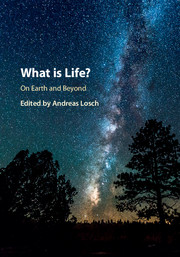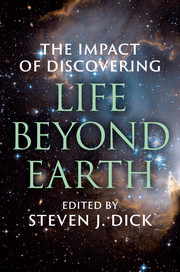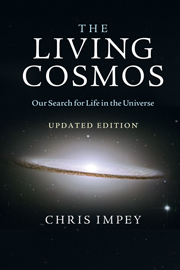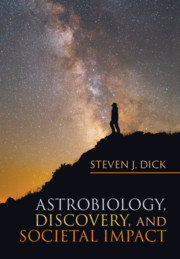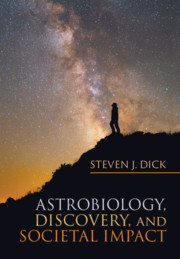What is Life? On Earth and Beyond
Approaches from the sciences, philosophy and theology, including the emerging field of astrobiology, can provide fresh perspectives to the age-old question 'what is life?'. Has the secret of life been unveiled and is it nothing more than physical chemistry? Modern philosophers will ask if we can even define life at all, as we still don't know much about its origins here on Earth. Others regard life as something that cannot simply be reduced to just physics and chemistry, while biologists emphasize the historical component intrinsic to life on Earth. How can theology constructively interpret scientific findings? Can it contribute constructively to scientific discussions? Written for a broad interdisciplinary audience, this probing volume discusses life, intelligence and more against the background of contemporary biology and the wider contexts of astrobiology and cosmology. It also considers the challenging implications for science and theology if extraterrestrial life is discovered in the future.
- Combines scientific, philosophical and theological approaches to the question of 'what is life?', for a holistic view of the phenomenon we know as 'life'
- Enables a dialog between science, philosophy and theology, to allow all sides to discuss the issues in a constructive and informed way
- Considers the potential for and meaning of life beyond Earth, enriching our perspective of the grandeur of the universe, whatever our beliefs
Reviews & endorsements
'All the contributions are well written and extensively referenced. They fit together well and give the impression of careful editing. At the end, do we really know what Life is? In his Introduction, the editor quotes the NASA working definition, 'life is a self-sustained chemical system capable of undergoing Darwinian evolution', and in his excellent Conclusion writes that the evolution of the special relation of its constituents might be the key to understand it. If we did find traces of life beyond Earth, we might learn more about the beginnings of its evolution here.' Peredur Williams, The Observatory: A Review of Astronomy
'The book is a stimulating read for an open-minded interdisciplinary audience that is eager to learn more about very different concepts of life - binary or not so much so - and intelligence. … The contributors to this volume succeed magnificently in an effort of vulgarisation of their highly specified research areas and the editor succeeds splendidly in not only juxtaposing these contributions but providing a frame that allows for an exchange of ideas, where not the one truth is held valid over all others but where syntheses may emerge and where a progress in knowledge and understanding develops step-by-step. Even though the reader may not be inclined to follow each and every line of argument, the political context of scientific developments, and their philosophical foundations are highlighted and the red thread of the initial question 'what is life?' surely lead to an individual gain of insights for every reader.' Ulrike Bohlmann, German Journal of Air and Space Law
Product details
July 2017Hardback
9781107175891
328 pages
254 × 180 × 19 mm
0.83kg
4 b/w illus. 12 colour illus.
Available
Table of Contents
- Introduction Andreas Losch
- 1. Reflections on origins, life, and the origins of life Marie-Christine Maurel
- 2. The search for another Earth-like planet and life elsewhere Joshua Krissansen-Totton and David C. Catling
- 3. The shape of life: morphological signatures of ancient microbial life in rocks Beda A. Hofmann
- 4. Precellular evolution and the origin of life: some notes on reductionism, complexity and historical contingency Antonio Lazcano
- 5. Science and philosophy faced with the question of life in the twenty-first century Michel Morange
- 6. What is life? And why is the question still open? Claus Beisbart
- 7. Is the origin of life a fluke? Why the chance hypothesis should not be dismissed too quickly Christian Weidemann
- 8. Some contemporary – and persistent – fallacies and confusions about astrobiology Milan M. Ćirković
- 9. Superintelligent AI and the postbiological cosmos approach Susan Schneider
- 10. What theology can contribute to the question 'what is life?' Andreas Losch
- 11. Autopoietic systems and the theology of creation: on the nature of life Alexander Maßmann
- 12. Where there's life there's intelligence Ted Peters
- 13. Life in the universe, incarnation and salvation Juan Pablo Marrufo del Torro, SJ
- 14. Talking lions, intelligent aliens and knowing God – some epistemological reflections on a speculative issue Taede A. Smedes
- 15. What is life? On Earth and beyond: conclusion Andreas Losch
- 16. A skeptical afterword Antonio Lazcano.

